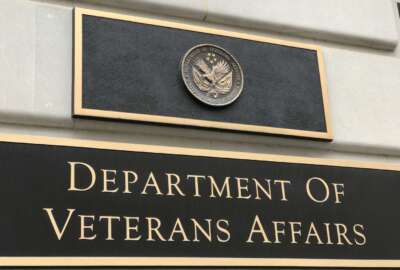Budget cutters vs. ‘cleared’ feds
Getting and keeping a security clearance is vital in a growing number of federal jobs. And useful when feds retire and go into the private sector. But are those...
(This column was originally published on July 13, 2011. It has been modified slightly from its original form.)
Security clearances, for obvious reasons, have always been important in government. Now with the war on drugs and the war on terrorism, having trustworthy, happy people is more important, in more jobs, than ever before. Having a security clearance (along with government-backed health insurance for life) is very useful when feds leave government, or retire, for a related job in the private sector.
Private contractors love getting experienced feds with their talent, experience, connections and security track records. But are budget-cutters about to make things worse?
Are the must-have clearances going to be harder to get, and keep, in the future?
Some feds think actions taken by the White House and planned by Congress will make it tougher for feds walking a financial tightrope to get, or keep, a clearance. Consider:
Federal pay has been frozen for two years. Congress (which is fast-becoming a millionaires-only club) may extend that freeze. There is talk of eliminating within grade raises, etc. There are also plans (outlined here) to increase the retirement contribution of FERS employees.
If, and it’s a big IF, FERS contributions are increased it would reduce take-home pay. Take home is your real salary, that is money you touch, smell and spend. For some people, especially in the higher grades, that is chump change. For many, however, take-home pay at current levels is highly useful for things like eating, rent/mortgage and paying the electric bill, etc.
Taking a 5 percent cut, during a pay freeze, could sink some employees. Example:
- ” It would be so unfair to force FERS employees to contribute more to their retirement. Does Congress know, or care, that the FERS benefit is about half that available to employees under the CSRS system? Does Congress know or care that FERS employees also pay the full amount into Social Security? Ninety percent of the people in my IRS office are under FERS. It has taken years to bring them up to optimal speed. Is Congress trying to drive them out of government?” – Ranger Rick
- “I’ve enjoyed your coverage of possible changes to federal workers compensation. I’d like to suggest a story idea: How might these potential reductions in take-home pay (due to increased FERS contributions, increased health insurance premiums, etc.) affect feds’ abilities to hold security clearances? We all know that credit ratings come into play, and anecdotally there are many feds living paycheck-to-paycheck. I think you see where I’m going with this.” – Chris
- A D.C.-based Justice Department employee said “Some of our agencies watching the Mexican border are having major problems because drug dealers are making a major effort to bribe U.S. employees either to look the other way, provide inside information, or for tips. Imagine what will happen if the pay freeze is extended and if they are forced to pay higher health premiums with a frozen and reduced paycheck?” – Tex-Mex Territory
- “Places like the DEA, CIA and Homeland Security are very sensitive to the money-problems of employees. At the IRS people get fired for even tiny tax problems. Cutting pay at this stage of the game is a form of fiscal madness. Don’t the clowns on the Hill know what is going on in the real world?” – Art
To reach me, mcausey@federalnewsradio.com
NEARLY USELESS FACTOID
Grand Rapids, Mich., was once known as the “SpaghettiOs Capital of the World!” According to the Franco-American company, which originally produced the pasta dish, Grand Rapids had the highest per capita consumption of SpaghettiOs in the country.
MORE FROM FEDERAL NEWS RADIO
Breaking News: Postal Service considers cutting 120,000 jobs
The financially strapped U.S. Postal Service is considering cutting as many as 120,000 jobs. Facing a second year of losses totaling $8 billion or more, the agency also wants to pull its workers out of the retirement and health benefits plans covering federal workers and set up its own benefit systems.
Labor considers collecting data on what vendors pay
The Labor Department is considering collecting salaries, wages and other benefits paid to employees of federal contractors and subcontractors.
MAP:Where in the world do feds work?
Federal employees don’t just live and work in the United States. Nearly 36,800 live in foreign countries. Find out where they are.
Where is the best place to work?
Where is the best place to work in the federal government? Fill out our quick survey! (Results will be featured in an upcoming issue of Washingtonian Magazine.)
Copyright © 2024 Federal News Network. All rights reserved. This website is not intended for users located within the European Economic Area.





